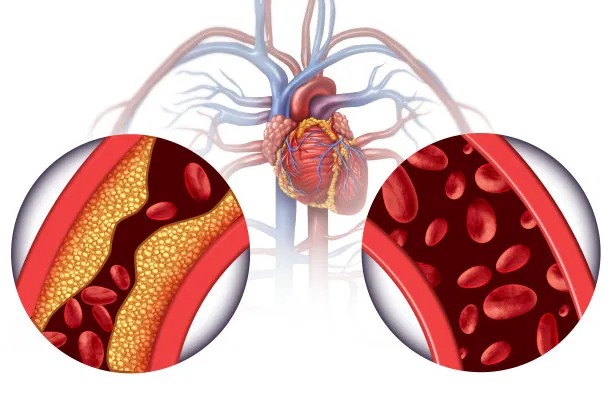Innovative Approaches to Cross-Border Cardiovascular Disease Treatment
original:health91192025-02-19 11:49:12
Summary: Innovative Approaches to Cross-Border Cardiovascular Disease Treatment explore cutting-edge methods for improving international collaboration in treating heart conditions. This article delv
Summary: Innovative Approaches to Cross-Border Cardiovascular Disease Treatment explore cutting-edge methods for improving international collaboration in treating heart conditions. This article delves into telemedicine, global research partnerships, personalized treatment plans, and cultural competency training, showcasing the potential of these innovative approaches to revolutionize cardiovascular care across borders.
1. Telemedicine in Cardiovascular Care

Telemedicine is rapidly transforming the way cardiovascular diseases are diagnosed and managed globally. Remote monitoring devices, virtual consultations, and mobile health applications enable patients to receive specialized care regardless of geographical barriers. This digital approach enhances access to cardiovascular expertise, empowers patients to take control of their health, and promotes early intervention to prevent complications.
Furthermore, telemedicine facilitates real-time communication between healthcare professionals from different countries, fostering knowledge exchange and cross-border collaboration in developing effective treatment strategies. By leveraging technology, healthcare providers can deliver high-quality cardiac care to underserved populations in remote regions, ultimately reducing disparities in cardiovascular outcomes.
Embracing telemedicine in cross-border cardiovascular disease treatment demonstrates the potential to revolutionize traditional healthcare delivery models and improve patient outcomes on a global scale.
2. Global Research Partnerships for Cardiovascular Innovations
Collaborative research efforts are essential for advancing the field of cardiovascular medicine and promoting cross-border knowledge sharing. Establishing partnerships between institutions in different countries allows researchers to pool resources, expertise, and data to accelerate the development of innovative treatments and interventions.
By engaging in multinational clinical trials and collaborative studies, healthcare professionals can gain insights into regional variations in cardiovascular disease prevalence, risk factors, and treatment responses. This comprehensive approach enables the identification of best practices and the customization of therapeutic approaches to suit diverse patient populations across borders.
Global research partnerships not only drive scientific advancements in cardiovascular care but also lay the groundwork for harmonizing treatment protocols, enhancing clinical outcomes, and fostering a culture of shared learning and innovation in the fight against heart disease worldwide.
3. Personalized Treatment Plans for International Patients
The concept of personalized medicine is revolutionizing the approach to cardiovascular disease treatment by tailoring interventions to individual patient characteristics, genetics, and lifestyle factors. Implementing personalized treatment plans for international patients involves evaluating genetic predispositions, cultural beliefs, and access to healthcare services to design interventions that align with patients unique needs and preferences.
By integrating data-driven insights and predictive analytics, healthcare providers can optimize treatment outcomes, minimize adverse effects, and enhance patient adherence to therapy across borders. Personalized medicine empowers patients to participate actively in their care, promotes treatment adherence, and improves overall health outcomes, regardless of geographic location or cultural background.
Embracing personalized treatment plans in cross-border cardiovascular disease management fosters a patient-centric approach, enhances treatment efficacy, and empowers individuals to embark on personalized health journeys supported by tailored interventions and evidence-based care.
4. Cultural Competency Training in Cardiovascular Healthcare
Cultural competency plays a crucial role in delivering effective cardiovascular care to diverse patient populations around the world. Comprehensive training programs that focus on understanding cultural norms, beliefs, and healthcare practices are essential for healthcare professionals to provide patient-centered care that respects individual differences and promotes trust and cooperation.
By enhancing cultural competence among healthcare providers, institutions can bridge communication gaps, address disparities in access to care, and improve treatment outcomes for international patients with cardiovascular diseases. Developing cultural sensitivity and awareness enables healthcare teams to deliver personalized care that considers cultural nuances, language preferences, and social determinants of health, ultimately fostering stronger patient-provider relationships and enhancing treatment adherence.
Integrating cultural competency training into cross-border cardiovascular disease treatment strategies enhances the quality of care, promotes patient satisfaction, and fosters a more inclusive and equitable healthcare system that values diversity and respects the unique needs of patients from different cultural backgrounds.

Summary:
Innovative Approaches to Cross-Border Cardiovascular Disease Treatment harness the power of telemedicine, global research partnerships, personalized treatment plans, and cultural competency training to revolutionize cardiovascular care on a global scale. By embracing these cutting-edge strategies, healthcare providers can enhance collaboration, drive scientific advancements, tailor interventions to individual needs, and deliver culturally sensitive care to diverse patient populations worldwide.
This article is published by HEALTH9119 Medical Health Network https://www.health9119.com arrangement